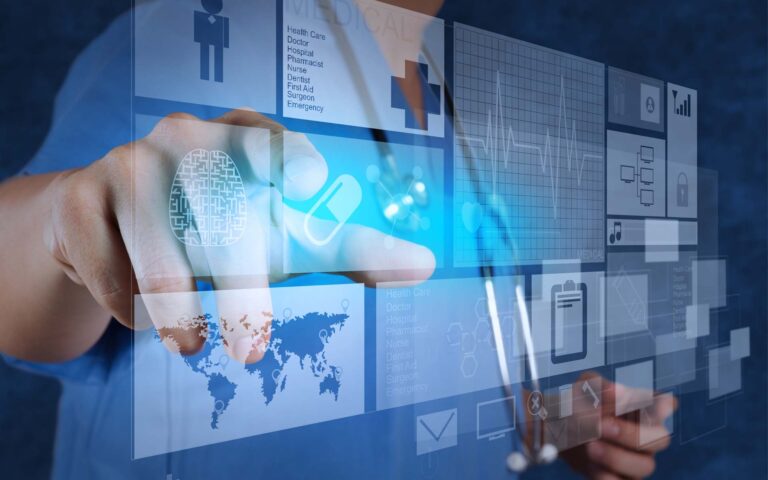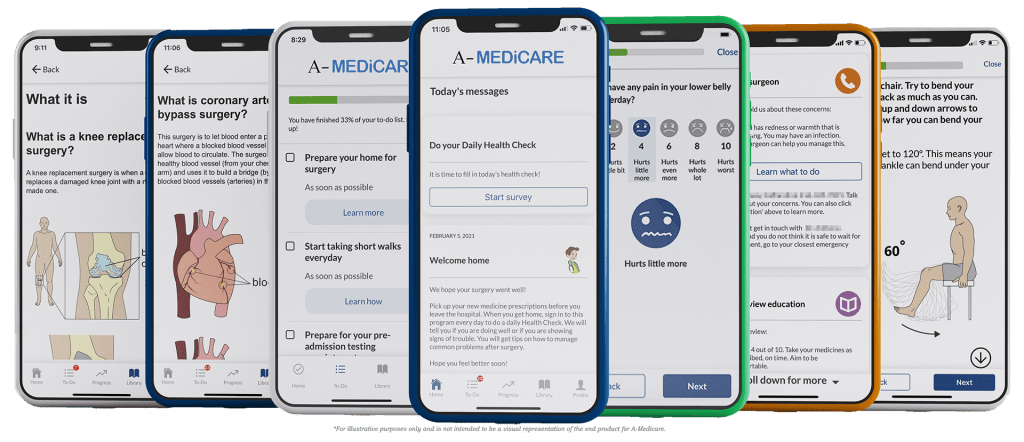A-Medicare will design real-time decision support system composed of thousands of queries and services based on machine learning algorithms displaying them into various large displays and iPad type devices. The machine learning algorithm will be designed to automatically learn and improve the processes from experience without being explicitly programmed or manually feed other data.
These iPad devices are issued to doctors and nurses for C3M type monitoring and quick response to provide service. The display devices show patient charts, patient-doctor-nurse interaction, dosing patterns, drug usage, patient surveillance, upcoming tests, diagnostic data, genetic testing, personalized digital health plans, and other healthcare information.
A-Medicare will provide information on self-treatment of diseases, improve communications between patients and care professionals so they can manage patient's health at home. Capturing the process via remote monitoring and analyzing them will improve home-health administration of drugs and appropriated care.


